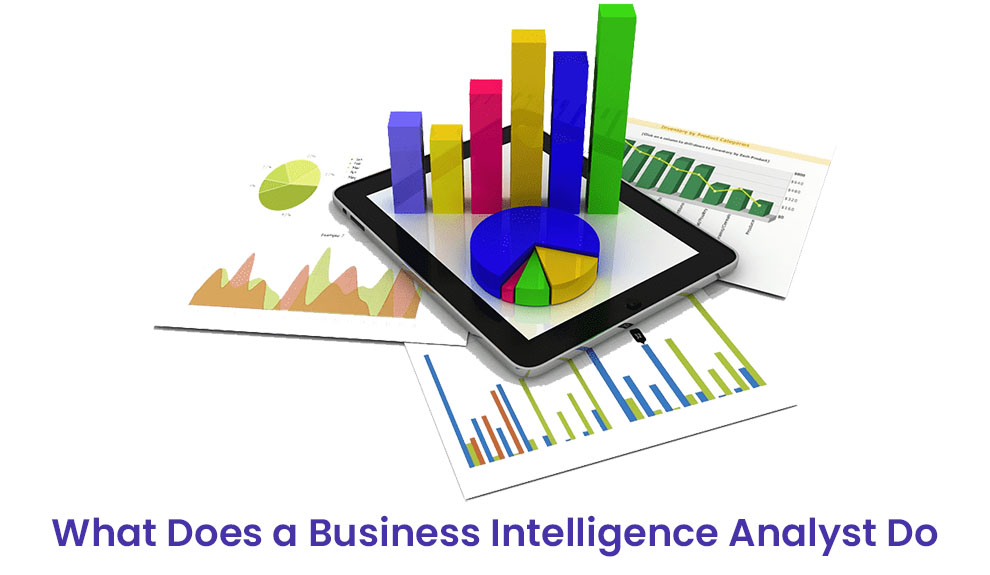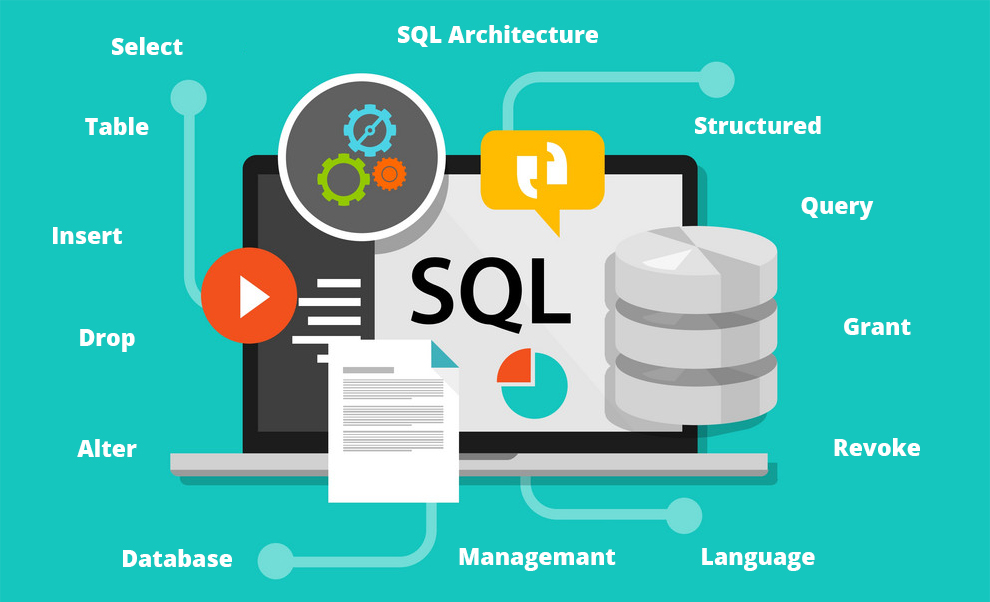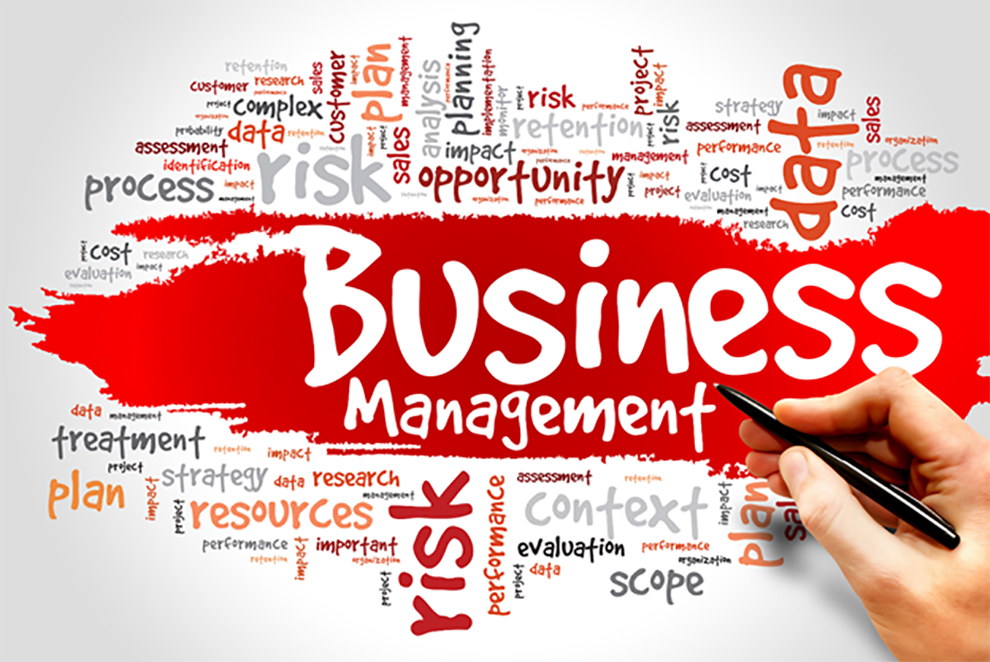The business world is becoming more and more competitive each day, forcing organizations to do all they can to survive and thrive in this environment.
This is why professions like business intelligence analysts are so in-demand today. After all, having a humongous amount of data in store will be of no use if you don’t have anyone to make sense of it. That’s where a business intelligence analyst comes into the picture. But exactly what does a business intelligence analyst do?
A BI analyst leverages data for organizational decision-making and accomplishing business goals. They are also responsible for the operation and management of data processing systems and tools.
The last few years have seen businesses across diverse sectors adopting business intelligence to facilitate better decision-making. This has opened a whole new world of opportunities for those who want to enter this field.
Skip To
- What Does A BI Analyst Do??
- Roles and Responsibilities of A BI Analyst
- How Much Does A BI Specialist Make?
- Skills That A BI Analyst Must Have
- Is There a Specific Qualification or Certification You Need To Be A BI Analyst?
- How Is It Different from Data Analyst?
- Conclusion
However, to be good at your job as a BI analyst, you need to possess several technical and soft skills including data interpretation, data visualization, knowledge of business and finance, ability to collaborate and communicate efficiently, statistical analysis, a little programming knowledge, and more.
Every organization out there aims at increasing its profits, improve its business practices, and have an edge over its competitors. This makes business intelligence a promising field, not only today but also in the future. The demand for skilled BI analysts is likely to up in the coming years.
If you are looking to build your career in this line, here is everything that you need to know about the roles and responsibilities of a Business Intelligence Analyst.
What Does A Business Intelligence Analyst Do?
To put it simply, a business intelligence analyst helps organizations understand and use the massive amounts of data they have. They compile and interpret this data and based on their findings, advise businesses on how to increase profits, streamline processes, and reach other organizational goals.
Still clueless? Let’s look at it this way! What BI analysts do can be divided into 3 broad categories:
- Breaking down relevant data
- Data interpretation
- Sharing the findings
A BI analyst is responsible for gathering, cleaning, compiling, and analyzing various data related to the business. This may include market information, sales, revenues, etc. As a BI analyst, you may also be asked to program data models and other tools to aid in monitoring or visualizing the data.
They will also be responsible for interpreting the data and looking for patterns or finding areas that point towards any scope of improvement in the current business practices.
Lastly, you will be required to share what you find after thoroughly analyzing the data. You may need to prepare visuals, presentations, and/or reports and can be asked to present these in front of other stakeholders. You will also be required to suggest ways to improve the performance of the organization, based on your findings.
Roles and Responsibilities of A BI Specialist
Now that you know what does a business intelligence analyst do, it’s time to discuss the various roles and responsibilities of a BI analyst. As you know, a business intelligence analyst works toward helping organizations make better business decisions by using data and other information. Their roles and responsibilities include:
- Mining and organizing relevant organizational data such as revenue reports, expenditure, financial data, and employment.
- Review and validate customer data upon its collection.
- Contribute to the development of procedures and policies for data collection and data analysis.
- What does a bi analyst do also involves collaborating with the IT department to deploy upgrades (software and hardware) for leveraging big data use cases.
- Getting together with the management team and other co-workers to implement improvements.
- Gathering and compiling data about reported issues. Using this information to suggest viable solutions that will result in more efficient processes and performance of the systems.
- Performing a cost-benefit analysis on various projects to optimize the organization’s performance. This is also a part of what BI analyst do.
- Collaborating with the teams to figure out the requirements in terms of personnel, resources, equipment, and other facilities.
- Planning out strategic goals in collaboration with management and other stakeholders.
- To assess how well the adopted strategies have been performing.
- BI analysts also work towards ensuring effective communication of data by preparing reports and conducting interactive presentations.
- Develop ways to improve data analysis.
- Find or create new data collection and processing programs.
- Ensure the integrity of collection and utilization of data.
- Their role also also includes monitoring analytics and metrics results and implementing new methodologies for analyzing data.
How Much Does A BI Analyst Make?
In the current business scenario, a capable business intelligence analyst is essential to the success of a business. Since BI analysts are so in demand, it goes without saying that they are compensated quite well for the role they play in the success of a business. The average salary of a BI analyst is around $87, 000 or more. This does not include the additional compensation or benefits they may receive.
Skills That A BI Analyst Must Have
What does a business intelligence specialist do for the success of an organization largely depends on his skills and capabilities. To do well in this line of work, one needs to master certain skills.
Here are the soft and technical skills you should possess to do well as a business intelligence analyst:
Soft Skills needed to become a BI analyst:
- Critical thinking
- Problem-solving
- Excellent communication skills (oral as well as written)
- Collaborator
- Organizing skills
- Attention to detail
Technical Skills needed to become a BI analyst:
- Data visualization
- Business acumen
- Statistical analysis
- Use of PowerBI
- Programming knowledge
- Technical notion
- Data preparation
- Data mining
- Descriptive analysis
- Data reporting
- Data-based tools like Excel
- SQL for Data Sciene
- Familiarity with coding languages
- Financial knowledge
Is There A Specific Qualification Or Certification You Need To Be A BI Analyst?
By now you must have understood what does a business intelligence analyst do. But do you know what it takes to become a BI analyst?
Most organizations seeking to hire a business intelligence analyst look for a candidate who has completed a 4-year degree program with a focus on data science, computer science, engineering, business administration, and other related fields.
What you need is a degree with an emphasis on organizational operations and business processes to start your career as a BI analyst. You can also opt for a long/short-term offline or online BI analytics course or a diploma to enhance your skills.
How Is BI Analyst Different From Data Analyst?
While the two analytics roles may share a few responsibilities or require somewhat similar skills, there are significant differences between a data analyst and a business analyst.
The following table will tell you a little more about what does a business intelligence specialist do along with the difference between the role of a data analyst and a BI analyst.
| Business Intelligence Analyst | Data Analyst |
| Focus on gaining operational insights | Data analyst perform various analysis on the data set |
| They are focused on understanding the past | They concentrate more on predicting the future |
| Focus on diagnostic analytics and descriptive analytics tools for surfacing past data into numbers or visuals. This can be used by the management to make sound business decisions.
|
Focus on exploring the data to look for patterns for crafting better prescriptive analytics and predictive analytics. This can help improve future outcomes.
|
|
Uses BI tools and data warehousing to find business-focused insights that determine business decisions. |
Uses analytics and statistical models to identify and solve problems.
|
|
Uses an evidence-based approach for providing intelligence to an organization.
|
Breaks down complex problems within the organization into qualitative values to resolve them
|
| Deals with structured data | Deals with structured as well as unstructured data |
| Structured and periodical analysis
|
Specific, investigational, and ad-hoc analysis |
Conclusion
As a BI analyst, you can either join an organization or start your consultancy. The best part is, that this role is quite versatile and can lead to amazing opportunities in several job sectors including automobile, health, banking, telecom and more.
Moreover, what does a bi analyst does vary greatly, depending on the type of organization you are planning to work for. You can go for a purely technical role where you mainly deal with programming, data mining, etc.
Alternatively, you can opt for a more human-oriented role. Here, you will mainly depend on your communication skills to help non-technical decision-makers understand data insights.
Keep your strengths and skills in mind while hunting for opportunities in this field. The profession also has a lot of scope for growth and promotion. All you have to do more is to make sure you keep upskilling as you move ahead.




